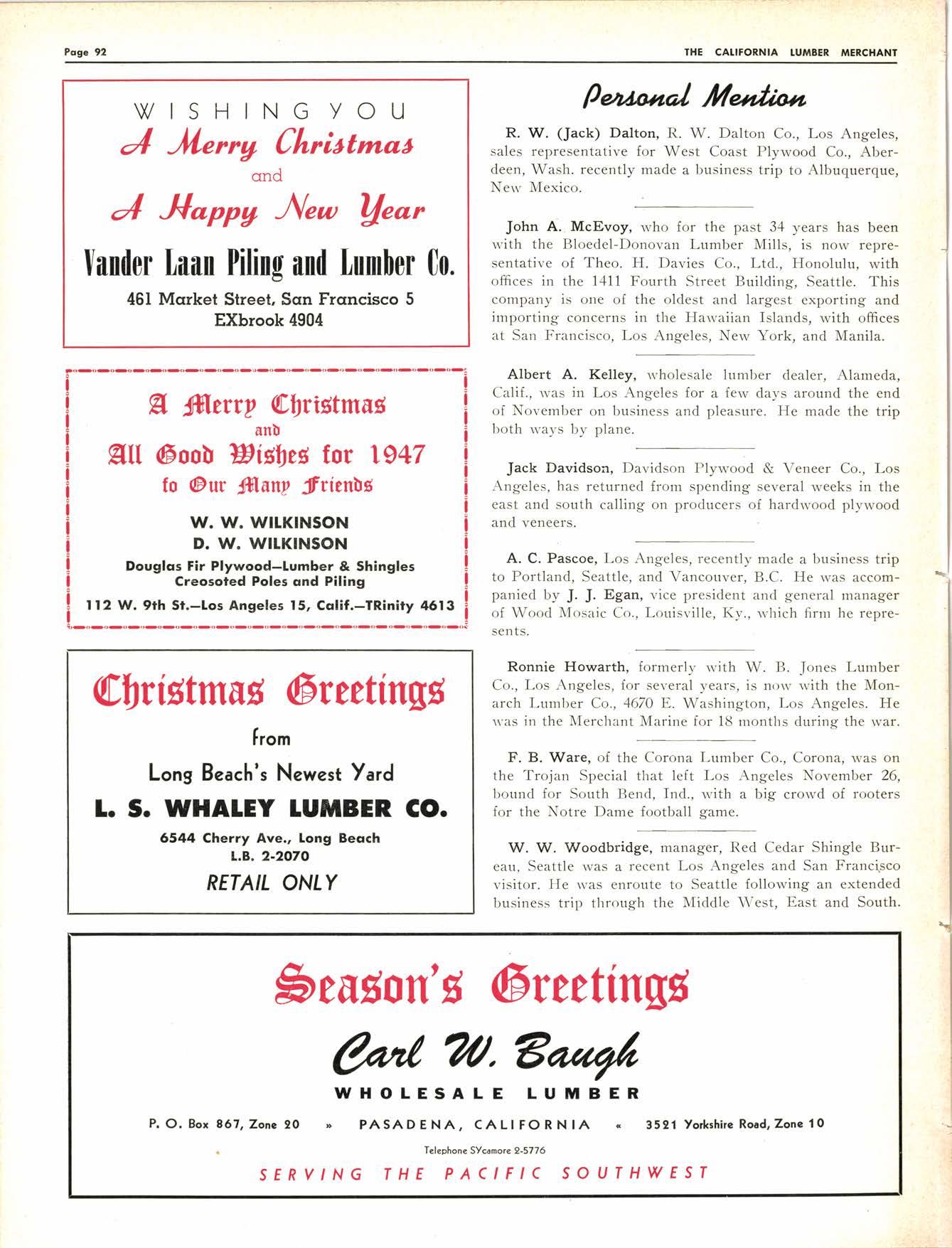
2 minute read
HATEY BROS.
SantaMonica, California
Summary of California Compulsory Disability Insurance Act
The Urremployment Insurance Act was amended in 1946 to require that the l/o payroll deduction made from employees for unemployment insurance purposes be paid into a disability insurance fund out of which may be paid weekly benefits to disabled workers in covered employment. 'fhe weekly benefits are the same as those payable under unemployment insurance, that is, from $lO to $20 per week depending upon employees' earnings in the highest quarter in his base period. The benefits are payable for 9 to 23.4 weeks, depending on the amount of wage credits ir-r the base period. The base period is the first four of the preceding five completed calendar quarters. An employee is disabled in any week rvhen by reason of his pl-rysical or mental condition he is unable to perform his regttlar or customary work. Pregnancies are exclnded up to termination and/or four weeks thereafter.
Benefits are not payable unless the employee is off rvork for a full l4-day period, then the benefits are retroactive to the 8th day. The employee must file a formal claim, accompanied by a medical certificate issued by a medical doc' tor, an osteopath, a chiropractor, or any approved religious practitioner. A11 persons in part time and full time employment and irrespective of age or sex are covered except agricultural labor, domestic service in a private home and those in the enrplov of the federal, state or local governments and employees of certain non-profitable charitable, educational and religious organizations.
The Act will be administered by the Unemployment fnsurance- Commission. An employee will not be eligible to receive benefits during any rveek in rvhich his employer pays all or part of his wages. Similarly the employee is not entitled to receive disability benefits if he is eligible to receive \\rorkmen's Compensation benefits.
The bil t provides that if the employer, rvith the consent of the majority of his employees or a majority of those in any distinct and separate establishment wishes, a private plan may be set up providing benefits greater than those provided in the State Plan in rvhich event the employee no longer would be required to pay the l/c payroll tax to the State Disability Fund.
The Act provides that no greater amount may be collect' (Continued on Page 66)

California Disability Insurance Act
(Continued from Page 64) ed for the basic benefits from the employee than the l/a on the first S3.000 of annual income. The benefits under the private plan may be greater in amount of weekly indemnity or the pavment may be for a greater duration and may start sooner. The private plan adopted must be made available to all employees. A waiting period before coming under the plan may be provided for. Private plans must be made effective for a minimum peribd of two years and may be cancelled thereafter upon 60 days'notice. {Jnder a private plan the insurance company will pay the claims directly to a disabled employee. If the employee is dissatisfied with the allowance made to him or with the denial of a clair-n, he may have the matter l-reard and determined by the Commission's Appeal Board.
The State Fund will pay {or disability incurred on and after December l, 1946. Private plans may be made effective on or at any time after December 1,1946.

License Vcrlidity Period Reduced
The vaiidity period for licenses to export doors, moldings, and other milhvork items essential to the Veterans Emerging IJousing Program has been reduced from one year to six months, it was announced by the Office of International Trade, Department of Commerce. The action was taken at the reque;t of the National Housing Agency in order to control more effectivelv exportation of these commodities.










